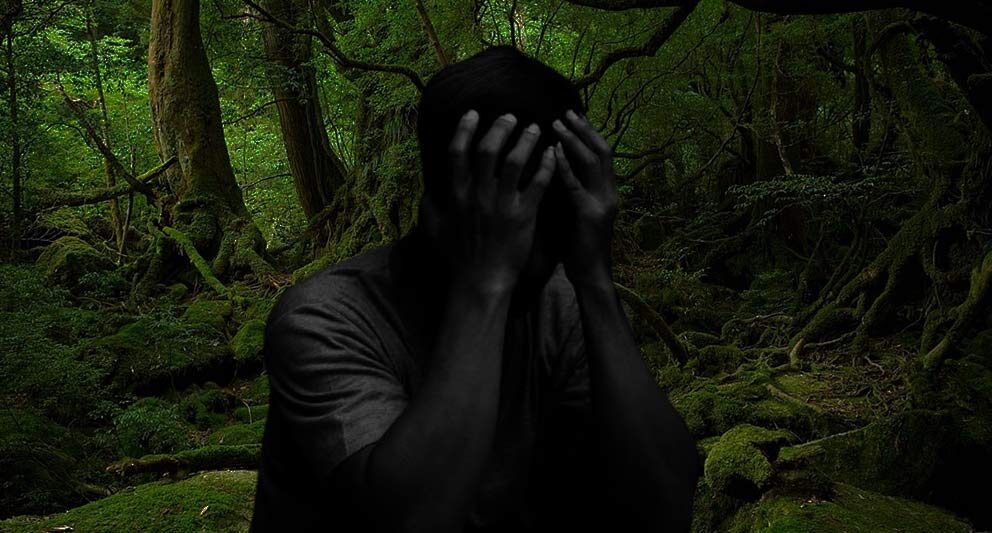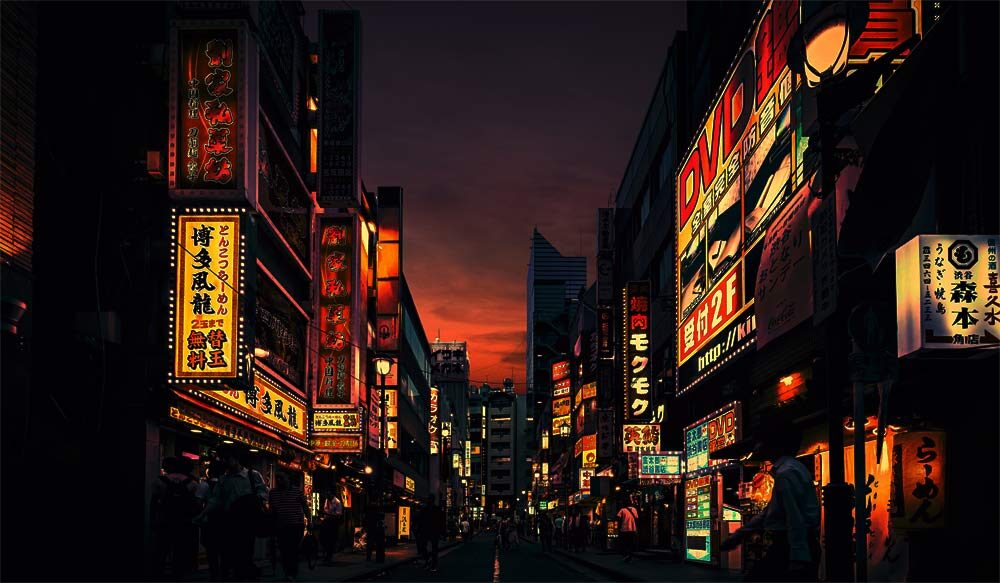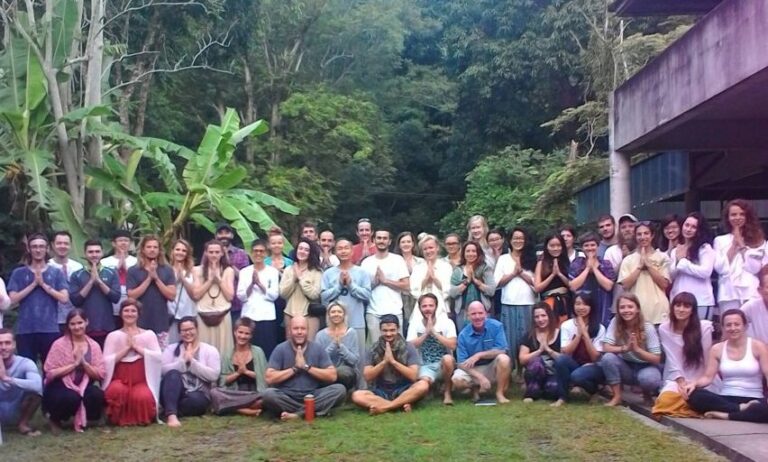Japan is a beautiful country with a rich culture, beautiful landscapes that change with the seasons, and extraordinary technological advances, almost something out of a sci-fi movie. It fascinates many people with cuisine with a harmonious blend of unique flavors, mind-blowing anime series, ancient Buddhist and Shinto traditions, ikigai philosophies, lean manufacturing production systems, and numerous other attractions that amaze people around the world. And yet, beneath this wide assortment of cultural richness lies a dark truth about Happiness in Japan, which most visitors don’t know and rarely witness.
Happiness in Japan is Defined by Infamous Work Ethics
Studying and working in Tokyo provided me with many experiences, including being a part of the overworking culture. Even as an outsider, I experienced this during my time at a senmon gakkou, which are colleges specializing in particular courses, and when I worked as an English teacher.
On the 8 AM train to school in the morning, I would see the whole commuter train asleep. Some would be sleeping while standing up. Some people would randomly lean their heads on another person’s shoulders, making them highly uncomfortable because they were so fast asleep. People would miss their stops, and countless snoring passengers always have to be woken up by the train station staff when they reach the end of the line.
One time, on the Fukutoshin line, a train stopped for an unusually long period at Shibuya station. Someone was lying down on the train floor with their head stuck between the doors of the train.
A drunk and extremely tired salaryman (as office workers are called in Japan) was getting his neck assaulted by the train doors every 3 seconds as the doors automatically closed in on his neck. Eventually, someone came to move his body away from the doors, only to put him lying in the corner with other almost stepping passengers, which all happened during a rush hour, as people were crammed full like sardines.
Is Tiredness a Good Sign?

My Japanese friends at school always used to tell me how it is a good sign to be tired and falling asleep during class. Apparently, it is a sign that you are ganbatteiru, working hard. We would associate this with a lack of Happiness in Japan and a low level of life satisfaction in the West. However, Japanese people will rarely admit that this is a problem because society says that people should work as hard as possible without any complaints.
This has positive effects on companies, schools, and collectives in general. People work more efficiently because of this societal pressure and work well as cogs in a bigger picture, as a big team.
However, individually, these people are miserable, doing what society tells them to do, unable to develop a sense of individualism, and remain stuck in jobs and courses they are unhappy with.
Extreme Loneliness and Disconnection
People are lonely in Japan. There are countless establishments across Japan, where people go to alleviate their chronic loneliness temporarily. Host and hostess clubs are regularly visited by Japanese men and women, where they pay to drink and chat with the opposite gender. These clubs usually start from 20,000 yen (around 150 dollars).
Promoters constantly attempted to lure me into these clubs as I walked the streets of Kabukicho, located right in Tokyo’s heart. I would regularly pass by “maid cafes,” which usually attract single men in their 40’s and 50’s who enjoy watching barely legal girls sing and dance in cute high voices while dressed in maid costumes.
In “cuddle cafes,” men can pay for cuddling a session with young and attractive women. And then there is “soapland,” which is an establishment where you can be bathed by a young Japanese woman and pay extra for sex.
Porn magazines with covers of naked girls with large breasts posing extremely provocatively are openly available in conbini, convenience stores. These magazines are placed right next to the kid’s magazines and the latest copy of Vogue. I lost count of the times I saw men reading hentai manga on the train. These things may lead to a sudden surge in temporary Happiness in Japan due to a release in dopamine, but why are these people so incredibly unhappy and lonely?
No Time To Learn Basic Social Skills

Many Japanese people are timid and lack appropriate social skills. The general culture tells people to conform to society, making it hard for people to develop their sense of individualism and, therefore, confidence.
I come from a country where we are encouraged to develop our sense of selves, where everyone is incredibly opinionated, political, and perhaps even controversial in this regard. I am also quite the opinionated leader type. Therefore, it was challenging for me to keep quiet about my opinions and not to stand out. I was shunned a lot of the time, either by people who were uncomfortable with me, intimidated, or jealous. I was highly uncomfortable with being an outcast initially but soon learned to use it to my advantage for my business objectives.
This showed me that in a society where everyone has to conform to the societal norms, it is difficult to develop confidence, and I noticed this also correlated with a lack of sex and genuine relationships. The incredibly unhealthy work culture also means people have far less time for genuine relationships, self-growth, and self-care. These factors contribute to the ill prostitution statistics due to repressed sexual energy, a lack of genuine relationships, loneliness, and lack of Happiness in Japan.
Tattemae and Honne Culture
Tattemae is when you put up a façade and don’t express your real opinions and desires to other people. Honne is the opposite when you express your true feelings and honest with other people. Other countries also have this Tattemae and Honne culture, but perhaps not to the extent of Japan.
Japan places heavy importance on outward appearances in society. Tattemae and Honne culture are very deeply ingrained in society to the point where people cannot truly express themselves in most social situations and therefore have to be fake.
This leads to a lack of genuine relationships, constant anxiety over what other people think of you, and consequently unhappy people. Many Asian cultures are similar in this regard. Still, until you have experienced the Japanese form of it, it is tough to understand the extent to which it causes unHappiness in Japan.
Suicide is a Major Social Issue

The most popular site for committing suicide in Japan is Aokigahara, a forest at Mt. Fuji’s base, where there are many signs encouraging people not to take their own lives. I have walked past the forest many times while seeing these signs and wondered what could have been done in Japan to prevent them. Suicide took more lives in Japan in October 2020 than during ten months of COVID-19 in Japan.
And yet, the topic of suicide and mental health is hugely taboo in Japan. People will generally never talk about mental health and refrain from going to a counselor because it is seen as shameful.
I remember being given an announcement at university about the guidance and mental health counselor, and I asked many of my classmates openly if they would go to them. I was met with reactions telling me to lower my voice and not talk about such things so openly.
Roman Russo’s Trip to Japan
In addition to what was said before by Shiori Noguchi, my own experience of spending 10 days in Japan was one of the cultures built around repressing sexual desires. Sure, the country offered a lot of interesting historical sights, incredible technological advances, like the one of a different century, and unbelievable beauty, both in terms of nature and Japanese cities. However, deep inside, I was aware of how this country was shaped by a lack of social contact and human intimacy.
After all, Japan is one of the few countries in the world with a negative birth rate. This means that, on average, there are more dying than being born. This, in turn, reflects how society structures itself. You can see it in many small things, like the astonishingly big video game industry, anime series, sex dolls, porn channels and sex magazines, the overall hentai culture, and many other aspects of life. Simply said, since people were escaping one of their fundamental pillars of happiness—social connection—they were compensating in different forms. In turn, this leads to a deep unHappiness in Japan.

Conclusion: The Hidden Unhappiness of Japan
Overall, throughout this article, we talked about many issues that are causing Japanese people to be unhappy, which start with extreme work ethic. It leads to people not having time, energy, or social skills to find a healthy human partner. In turn, they have to visit host and hostess clubs, maid cafes, and other establishments to find some sort of human contact and intimacy.
We also mentioned the high suicide rate brought about the repression of the basic human desire to connect to other human beings and focus on different escaping ways (e.g., alcohol, porn magazines, and video game industry).
Yet, all these negative things are hidden from people as they put on a strong cultural acceptance mask and through the ganbatteiru culture. Moreover, Japan is still a beautiful and amazing country, with its own deep and unique culture, which is different from anywhere else in the world. It makes Japan known and respected around the globe.
This is all to say that, in this current blog post, we were most interested in the happiness in Japan as a subject of study, almost as a comparison to many other countries in the world. Thus, if you are ever interested in visiting Japan, feel free to discover many of its unique touristic sights and breathtaking views. Yet, be aware that beneath that Tattemae (façade), there lies a potential for unhappiness rarely shown or discussed with other people in the outside world.
















3 thoughts on “Happiness in Japan: Extreme Work Ethics, Loneliness, and Repressed Emotions”
Pingback: STOP Using Toilet Paper!
Pingback: 8 Superfoods of Happiness That Keeps Us Healthy & Happy
Pingback: Your Money Here Will Be Worth More Somewhere Else